Our Resources
Looking for professional development? Check out our comprehensive programs and resources on instructional design, performance improvement, eLearning, microlearning, assessment/evaluation, learning analytics and more. These programs and resources are packed with valuable, practical insights gleaned from research and hands-on experience spanning more than four decades.
Click each to learn more…
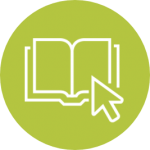
Articles and eBooks
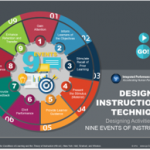
Designing Instructional Techniques
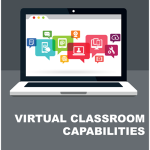
Virtual Classroom Capabilities
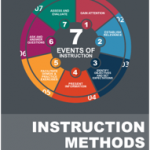
Instruction Methods
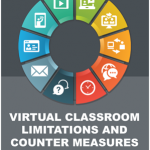
Virtual Classroom Limitation and Counter Measures
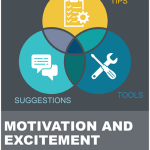
Motivation and Excitement

Online Courseware
In this series of highly interactive self-directed eLearning programs, participants have an opportunity to explore principles of adult learning and instruction with an emphasis on how they are applied in the real world. They will examine implications from learning theory along with models of instruction that can be immediately put into practice. Discussions, examples and practice exercises help participants apply their new knowledge and develop critical skills. Quick references and tools are provided for ongoing performance support.
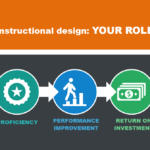
Introduction to Adult Learning
When it comes to helping adults learn, what do you think works best…traditional classroom techniques, or something more personal and relevant?
Adults bring a wealth of life experiences to their learning situations, as well as strong opinions and attitudes toward learning. If the differences between adult and other learners are not addressed, the learning experience will be far from optimum.
This course helps you learn about those key differences and how to design and deliver effective learning experiences.
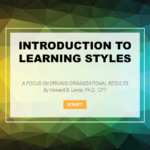
Introduction to Learning Styles
Everyone has a preferred learning style. Would you rather read something or be told about it? Do you like taking notes or would you prefer to practice something until it is learned? People think and learn differently. Most of us learned by one style, and that is sitting in a classroom listening to lectures, but is that the best way?
This course will outline different learning styles and illustrate how to design and deliver effective learning experiences that appeal to different styles. You’ll even have a chance to check out your own preferred styles!
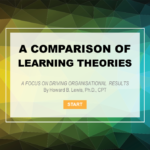
A Comparison of Learning Theories
How do people learn? It’s a natural process, right?
Sometimes learning is as easy as breathing, other times as difficult as pulling teeth. The “why” of this is what we’ll explore in this course.
And, we will examine how the insights gained through these learning theories can be applied in practice.

Models of instruction
In this course you’ll get an overview of the field of instruction, and instructional design. It may surprise you that instructional design is a relatively new area of specialization, have been formalized as a discipline only during the latter part of the 20th century. Instructional design has become a diverse, multifaceted discipline the impact and use of which is becoming more and more widespread.
We provide a strong foundation that you can use to design effective learning experiences. Although we cover several rather complex models in this course, we kept it simple and provided the “need-to-know” information that you can immediately apply.
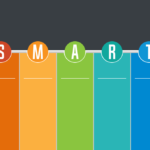
How to Write Performance-Based Objectives
When it comes to designing and developing learning experiences and resources for business and industry, what counts are tangible business results.
How can you make sure that your learning objectives impact performance and generate desired business results?
That’s what you can expect to take away from this course.
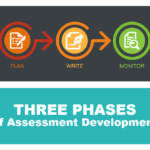
How to Write Effective Assessments
Quizzes, tests, exams, knowledge checks, challenges … by any name, assessments have been the cause of too many “bitten nails” and “chewed pencils”! Indeed, assessments (or “testing” if we are blatant about it) is an inevitable, but too often dreaded, part of learning…. not only for the student or participant, but for the instructional designers and trainers as well.
Yes, there’s plenty of “test anxiety” to go around! But, that’s about to change. With the right planning, guidelines, and tools you can develop effective assessments that appropriately measure performance, build confidence all around, and make a positive impact on the business!

Rapid Evaluation Planning
Was the course effective?
Did the students meet the objectives?
Were they satisfied?
Did their knowledge and skills transfer?
What was the impact and ROI?
What is the gap in performance?
Are we “adding value”?
The true nature of evaluation is about first making sure you are asking the right questions…and then being able to make well-informed decisions.
In this course you’ll have an opportunity to enhance your ability to quickly plan any type of evaluation you may need to conduct!

Designing High-Impact,
On-Demand Solutions
The speed of learning is accelerating! It’s an exciting time for instructional designers! New technologies open up fresh possibilities for creating high-impact, on-demand solutions that can make a significant contribution to the success of the businesses we support. Therefore, we must continually strive to expand our capabilities. And that’s what this course is about… sharing ideas and stimulating your thinking about the types of solutions you can design.
Overall, we’re confident that you will be able to refine your instructional design toolkit!
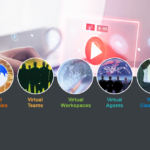
Maximizing Impact In The
Virtual Classroom
If you’ve ever had the opportunity to help someone else learn, at various times you’ve probably been concerned that the learner is confused, struggling, fatigued, or in disagreement, or even if you’re helping them at all. In a formal setting we rely heavily on eye contact, facial expression, and body language. Effective instructors and facilitators use this visual feedback to dynamically adjust pacing, tone of voice, proximity to student, questioning, and other instructional techniques.
But what if you have none of those cues to guide you? How can you design and deliver effective learning experiences when instructors and students are not face to face in the same room? That’s what this course is about.

Webinars

Webinar TBD

Workshops

Conducting Consultative
ID Conversations

Certification Programs

Designing Engaging,
High-Impact Microlearning
